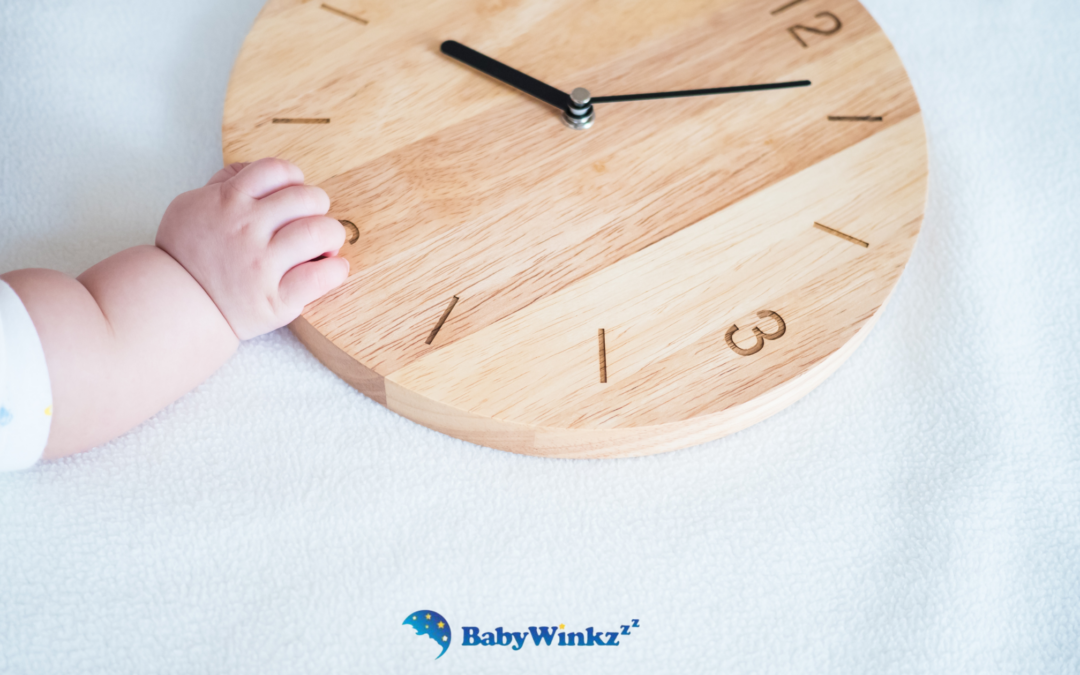This autumn the clocks will fall back by one hour on October 29th at 2am in the UK. This is usually a great night of sleep where we can look forward to laying in for an extra hour in the morning, if your child lets you be so lucky. Failing to successfully adjust your babies sleep cycle by an hour can lead to extra early risers or overtiredness when falling asleep at the later bedtime following the clock change.
Why does the clock change influence my baby’s sleep?
We all have an internal clock called the circadian rhythm. This is where our body regulates cycles of alertness and sleepiness throughout a 24-hour period. This means that although the time changes on our clocks externally, children who are more in tune with their internal clocks can find it harder to adjust, especially because children’s sleep thrives on a routine that follows consistent sleep and wake times. When the clocks suddenly change, it is common that babies and toddlers sleep-wake cycle becomes out of sync with their external environment. Therefore, it’s important that we do our best to help our little ones adjust their internal clocks to match the external clocks.
How to prepare baby’s sleep for when the clocks fall back
Moving your child’s sleep time back in smaller blocks over a longer period of time is a good way to allow the bodies sleep cycle to adjust. It can be helpful to start this in the week leading up to the clock change. A good way to do this is by pushing bedtime and wake time forward by 15 minutes each night leading up to the clock change. Depending on your child you may feel that it is more suitable to do 10 minute adjustments or 20. If your child is really struggling to adjust move the sleep time forward by 15 minutes for 2-3 days and then again after a few nights. Remember that this adjustment is a process and it may take anywhere between 1 night for your baby to adjust up to a week until they are back on their normal sleep schedule.
Other tips to help your baby or toddler sleep
Keeping the same bedtime habits such as a consistent routine for your baby or toddler will help. You can also use light and dark to help influence the bodies internal clock, so keep lights on for a little longer in the evenings and keep their room dark until the new wake times in the morning. If your toddler is slightly older and pays attention to the times on the clock, it can help to adjust the clock time as you adjust their routine so that when they wake up in the morning they are more likely to go back to sleep until the clock shows their normal waking time.
See next blog post: Getting your child to sleep on Halloween

